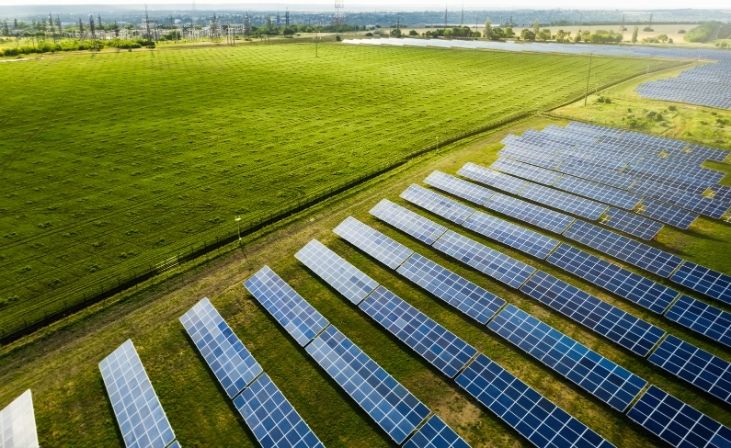8 Anticipated Legal Bans in the Coming 20 Years
The legal landscape is constantly evolving, shaped by societal changes, technological advancements, and shifting priorities. While we cannot predict the future with certainty, we can identify trends and issues that may lead to anticipated legal bans in the coming 20 years. In this blog post, we’ll explore eight potential areas where significant legal restrictions or bans may emerge. These anticipated bans touch upon a wide range of topics, from environmental concerns to emerging technologies and social issues. While some may already be in the early stages of consideration, others are speculative but reflect ongoing debates and concerns in our society.
Single-Use Plastics

The issue of single-use plastics has gained significant attention in recent years due to their detrimental environmental impact. Several countries and regions worldwide are taking concrete steps to address this problem, with legal bans on various single-use plastic items set to become more prevalent in the coming two decades.
Many governments are recognizing the urgency of reducing single-use plastics, particularly items like plastic bags, straws, and disposable cutlery, which contribute to pollution in oceans and landfills. They are implementing regulations and bans aimed at phasing out these items. These bans are often part of broader efforts to promote sustainability and reduce plastic waste.
Additionally, as public awareness of the environmental consequences of single-use plastics continues to grow, there is a growing demand for alternatives and eco-friendly products. This demand is likely to drive further legislation and innovation in the field of sustainable materials and packaging.
Fossil Fuel-Powered Vehicles

The future of fossil fuel-powered vehicles is undergoing a significant transformation, with legal bans on these vehicles set to become increasingly common over the next two decades. Governments around the world are recognizing the urgent need to reduce greenhouse gas emissions and combat climate change, and one of the key strategies is phasing out traditional internal combustion engine vehicles.
Many countries and regions have already set targets for banning the sale of new fossil fuel-powered cars. These bans typically focus on petrol and diesel vehicles, with an emphasis on transitioning to electric vehicles (EVs) and other low-emission alternatives. Some countries are even offering incentives and subsidies to encourage the adoption of EVs.
As technology advances and charging infrastructure improves, the feasibility of transitioning to electric and other clean energy vehicles becomes more apparent. The automotive industry is responding by investing heavily in EV development, which further supports the shift away from fossil fuels.
High Emission Vehicles

Over the next two decades, there is a growing expectation that legal bans on high-emission vehicles will become increasingly prevalent as part of efforts to combat climate change and reduce air pollution. High-emission vehicles, primarily those running on fossil fuels like gasoline and diesel, are a major contributor to greenhouse gas emissions and air quality problems in many regions.
Countries and cities worldwide are setting ambitious targets to phase out high-emission vehicles. These bans often focus on prohibiting the sale of new vehicles with high emissions, encouraging the adoption of cleaner alternatives like electric vehicles (EVs) or hydrogen-powered cars. Some regions are even considering stricter measures, such as restrictions on the use of high-emission vehicles in certain areas.
Governments are also implementing incentives and subsidies to promote the transition to cleaner transportation options. These incentives aim to make EVs more accessible and affordable to a broader range of consumers, further hastening the shift away from high-emission vehicles.
Certain Pesticides and Herbicides

Over the next two decades, legal bans on certain pesticides and herbicides are anticipated to become increasingly prevalent as part of global efforts to protect the environment and human health. Many countries and regions have been scrutinizing the use of pesticides and herbicides due to their potential harm to non-target species, soil health, and water quality.
The bans often target specific chemicals known to be particularly harmful or persistent in the environment. These bans can be motivated by concerns over their impact on pollinators like bees, and aquatic ecosystems, or links to health issues in humans.
Governments are responding by implementing stricter regulations and phasing out the use of these chemicals in agriculture and landscaping practices. Alternatives such as organic farming methods and the development of safer, more environmentally friendly pesticides are being encouraged.
Quick Link: 7 Things to Know About Copper Cookware
Certain Tobacco Products

Legal bans often target specific types of tobacco products known for their high health risks, such as flavored cigarettes, menthol cigarettes, and smokeless tobacco products. These bans aim to reduce the appeal of these products, especially among young people, and to mitigate their health impacts.
Governments are also imposing stricter regulations on the marketing and advertising of tobacco products, including graphic warning labels, plain packaging, and restrictions on advertising in various media.
International agreements and conventions, such as the Framework Convention on Tobacco Control (FCTC) by the World Health Organization, are influencing these decisions and encouraging countries to take stronger actions against tobacco use.
Non-Renewable Energy Sources

Governments worldwide are setting ambitious goals to phase out non-renewable energy sources. These bans often focus on prohibiting the construction of new fossil fuel power plants and the extraction of fossil fuels from the ground. Simultaneously, there is a push to accelerate the transition to renewable energy sources such as solar, wind, and hydropower.
International agreements and commitments, like the Paris Agreement, are pressuring countries to reduce their reliance on non-renewable energy and increase their investments in sustainable alternatives.
In addition to environmental concerns, these bans are driven by a desire to enhance energy security and reduce dependency on imported fossil fuels. Investments in renewable energy technologies are seen as a means to stimulate economic growth and job creation.
Deforestation Practices

Deforestation, driven by activities like clear-cutting for agriculture, logging, and urban development, has severe impacts on biodiversity, climate change, and local communities. Governments and international organizations are taking steps to combat deforestation by implementing stricter regulations and bans. These legal measures often aim to protect ecologically sensitive areas, halt illegal logging, and promote sustainable land management practices.
Many countries are also committing to international agreements, such as the United Nations’s REDD+ program, which seeks to reduce emissions from deforestation and forest degradation while supporting conservation and sustainable forest management.
In addition to legal bans, consumers and businesses are increasingly demanding sustainable and deforestation-free products, putting pressure on industries to adopt responsible sourcing practices.
Certain Animal Testing

Legal bans are often centered on the prohibition of testing cosmetics and cosmetic ingredients on animals. This shift is driven by a desire to eliminate unnecessary harm to animals and promote cruelty-free practices in the beauty industry. Alternatives such as in vitro testing and computer modeling are becoming more sophisticated and reliable, making them viable substitutes for animal testing.
International efforts and agreements, like the European Union’s ban on animal testing for cosmetics, are influencing similar decisions in other parts of the world.
Consumers are increasingly conscious of animal welfare concerns and are demanding products that are not tested on animals, further incentivizing companies to seek alternative testing methods.
Bottom Line
In conclusion, the next two decades hold the promise of transformative legal changes in response to the evolving needs and concerns of our society. Anticipated legal bans in various domains, such as environmental protection, technology, and social issues, underscore the dynamic nature of our legal system. These changes often reflect our collective responsibility to address pressing challenges, protect individual rights, and safeguard our planet.
As we move forward, it’s essential to stay informed, engage in meaningful discourse, and actively participate in shaping the legal landscape through our democratic processes. The future is uncertain, but by remaining vigilant and advocating for policies that align with our values, we can help guide the direction of legal bans and regulations in a way that serves the greater good.
FAQs:
Staying informed involves keeping up with current events, following legal news sources, and engaging in discussions with experts or organizations focused on specific areas of interest. Additionally, monitoring government websites and legislative updates can provide valuable insights into potential legal changes.
Public opinions and advocacy efforts can have a significant impact on the formulation and passage of laws. Engaging in advocacy, participating in public consultations, and supporting organizations aligned with your views are effective ways to influence the legislative process.
Yes, many proposed legal bans and regulations are actively debated and considered at local, national, and international levels. These proposals often address issues such as climate change, emerging technologies, public health, and civil rights. Staying informed about legislative agendas and participating in relevant discussions can help you understand and influence these processes.




